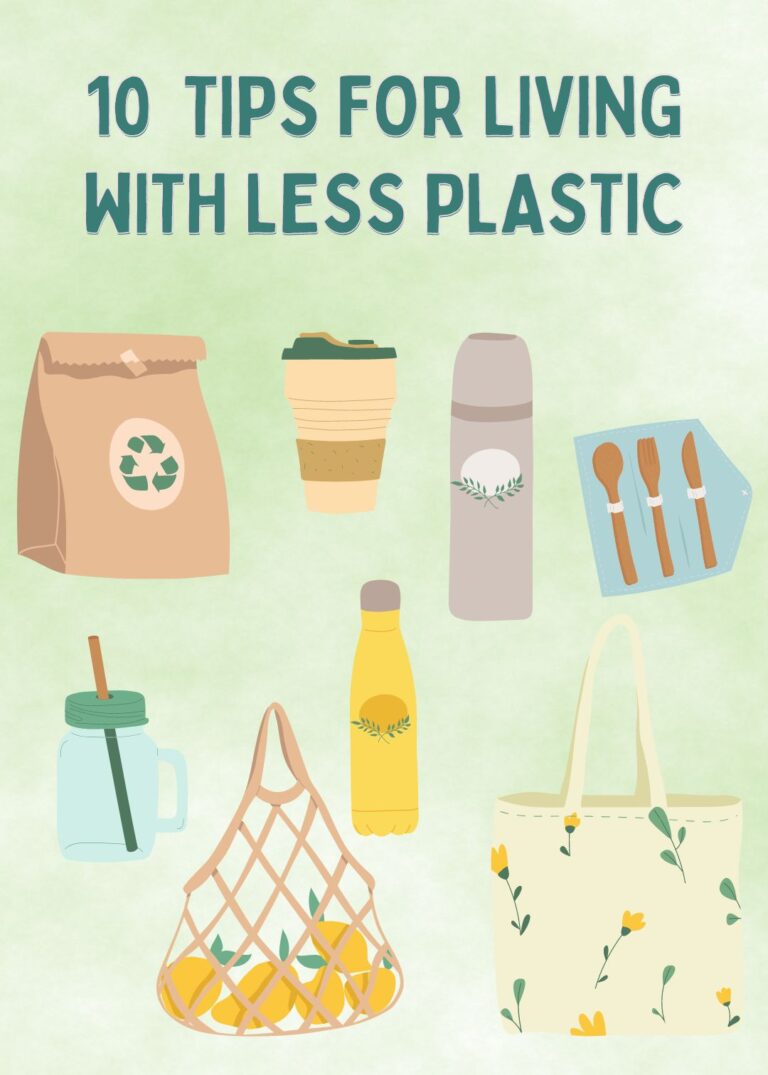5 Simple Ways to Reduce Food Waste at Home
Five easy and practical strategies to help you minimize food waste in your kitchen and save money on groceries.
This post contains affiliate links, which means I will receive a commission at no extra cost to you should you click through and make a purchase. Please read Disclosure Policy for more details.
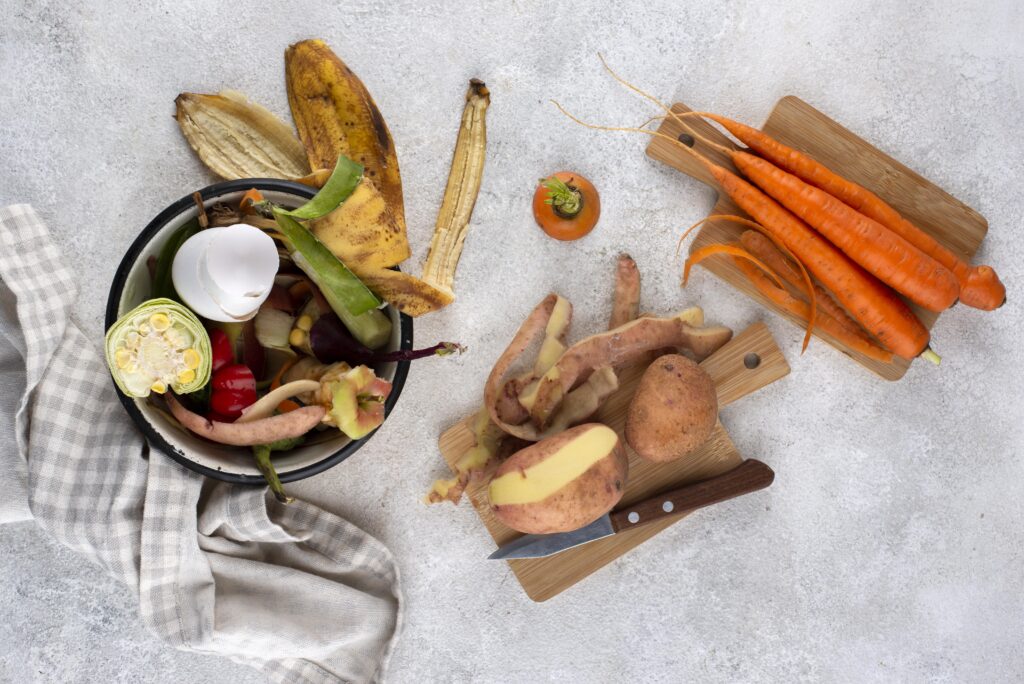
In today’s fast-paced world, it’s easy to overlook small things, like food that gets tossed in the trash without a second thought. Most of us are guilty of buying more food than we need, throwing away leftovers, or forgetting about that half-eaten sandwich at the back of the fridge. But what’s the big deal, right? The truth is, that food waste is terrible and it’s a significant global issue.
According to the Food and Agriculture Organization of the United Nations, every year millions of tons of food are lost or wasted around the world. Roughly 14% of all food produced worldwide is lost between harvest and retail alone. Large amounts of food are also lost at the consumer or retail levels.
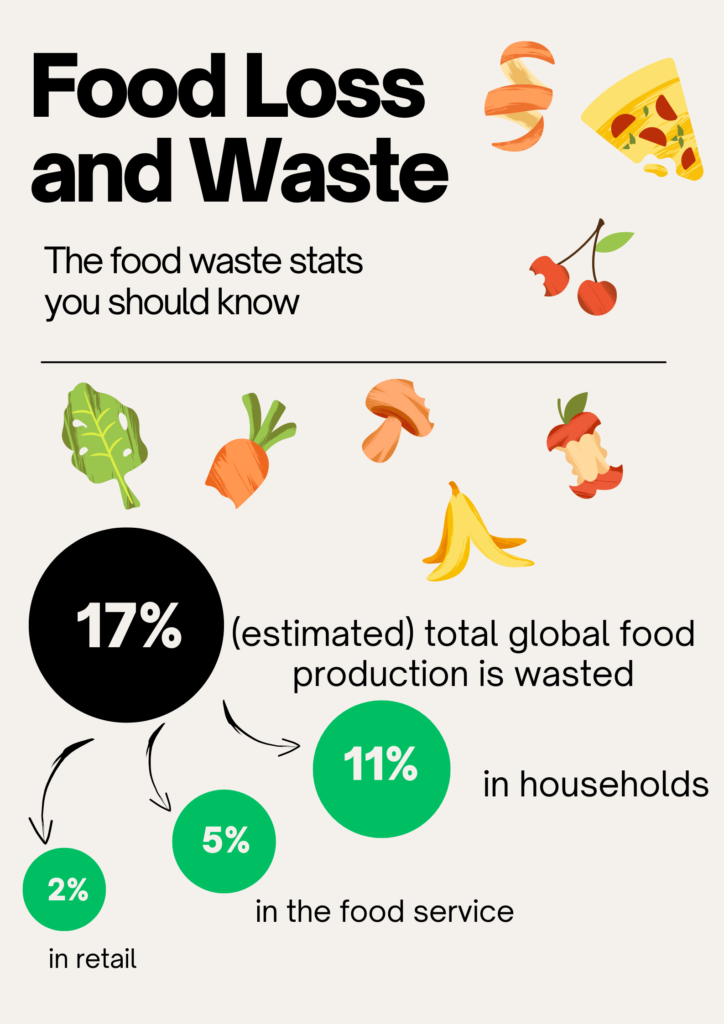
Food waste not only leads to environmental damage but also economic losses and missed opportunities to feed people in need. In other words, wasting food increases greenhouse gas emissions and contributes to climate change. So it’s essential to find ways to reduce food loss and waste in a world where millions of people go hungry daily.
The Downsides of Food Waste
When you throw away food, you’re saying goodbye to your hard-earned money. When your leftovers hit the landfill, they decompose and release methane, a potent greenhouse gas. All of the resources—water, energy, land, labor, and capital —that went into producing that food are wasted. Food loss and waste can also raise the price of food and have a detrimental effect on food availability and security.
As individuals, we have the power to make a difference. It is our responsibility to alter our habits and behaviors to make not wasting food a way of life!
In this article, we will explore easy actionable ways to help the environment as well as save money in our wallets.
The List of Ideas on How to Reduce Food Waste at Home
- Resist the Urge to Buy Unnecessary
- Find Creative Ways to Use Leftovers
- Store Food Properly
- Preserve Food
- Try Composting
1. Resist the Urge to Buy Unnecessary

One of the easiest ways to avoid food waste is to become a conscious consumer and shop smarter. This means taking stock of the pantry and refrigerator before going to the grocery store. It’s better to prepare a list of the items you need before shopping to avoid impulse purchases, which are often the root cause of food waste.
While shopping, be mindful of the expiration dates of the food products you intend to purchase and try to buy those with the longest shelf life.
Buying in bulk can also help reduce food waste by allowing you to purchase more food at a lower cost and save frequent trips to grocery stores.
2. Find Creative Ways to Use Leftovers
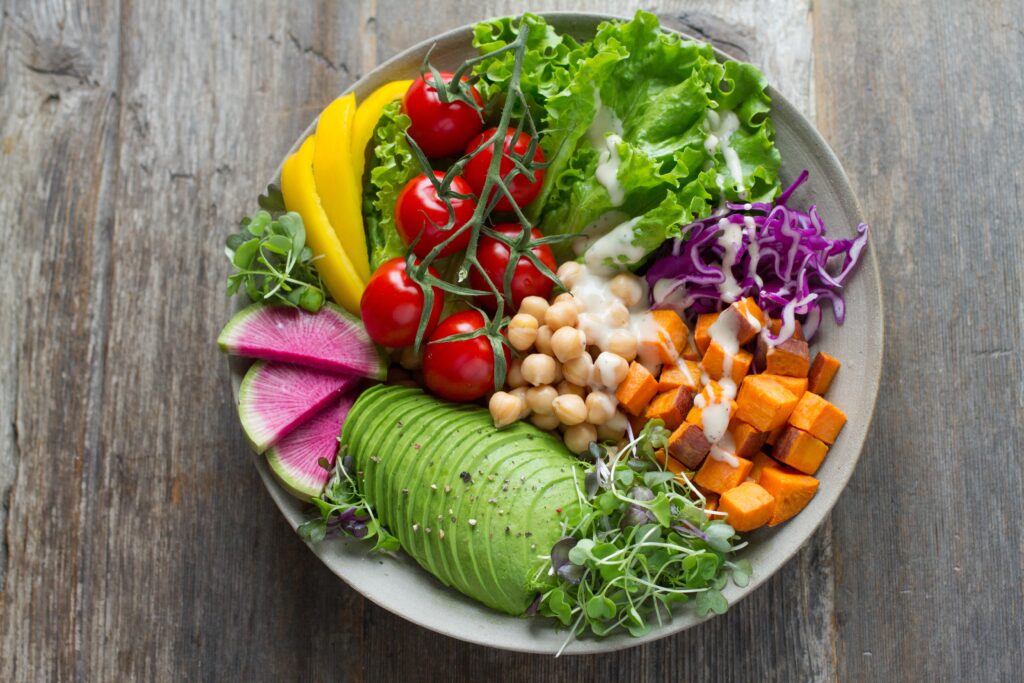
If you are someone who rarely touches leftovers, try meal planning or cooking smaller meals. But if you have prepared more food than required, don’t discard the leftovers. Instead, label and store them in the fridge or freezer. Then repurpose them creatively to make new and delicious meals or snacks. For example, you can use leftover vegetables to make stir fries, soups, sandwiches, or salads.
If you have excess produce or prepared meals, consider sharing it with neighbors, friends, or coworkers. You can also donate it to a local food bank or shelter. This fosters a sense of community, helps to minimize food waste, and provides meals for those in need.
3. Store Food Properly
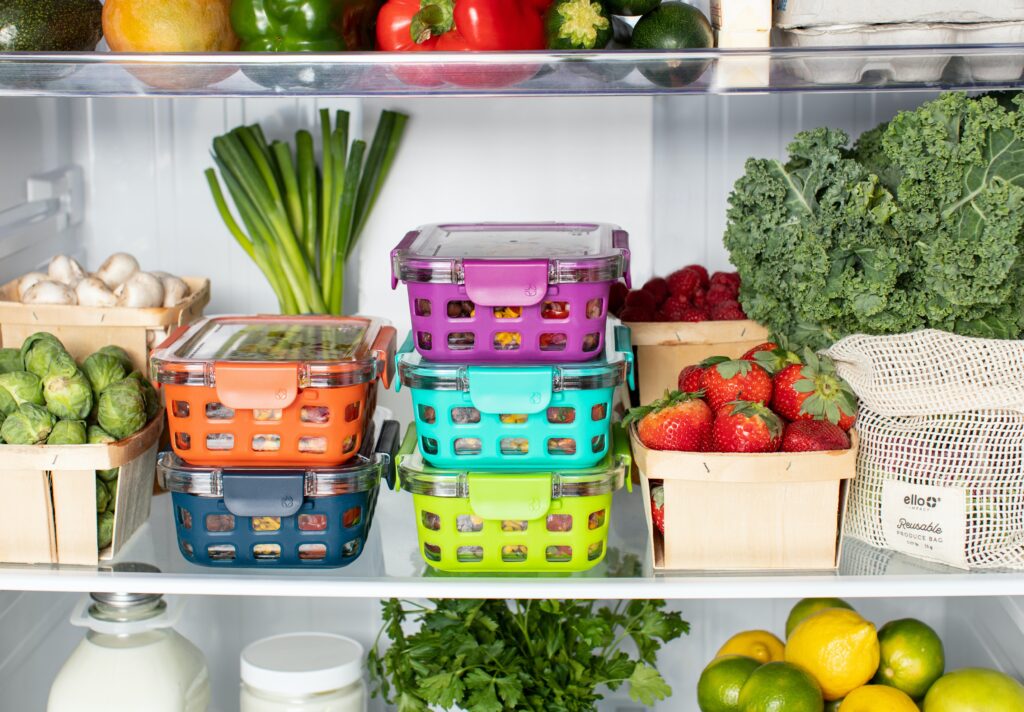
Proper food storage is crucial to preserve freshness, extend shelf life, and prevent spoilage.
Some helpful tips are:
- store cooked food in the refrigerator in airtight containers made with sustainable options such as glass, stainless steel, beeswax wraps, bamboo, or reusable silicone bags
- as soon as you return from the store, make sure to refrigerate perishable items, such as dairy and produce
- store fruits and vegetables separately in the crisper drawer of your refrigerator
- store greens such as coriander, mint, spinach, etc in a paper towel in a container in the crisper drawer
- store potatoes and onions separately in a cool and dark place in the kitchen
- store bananas on the kitchen counter
You should also regularly check your fridge and pantry for food items close to their expiration dates and use them up first.
4. Preserve Food
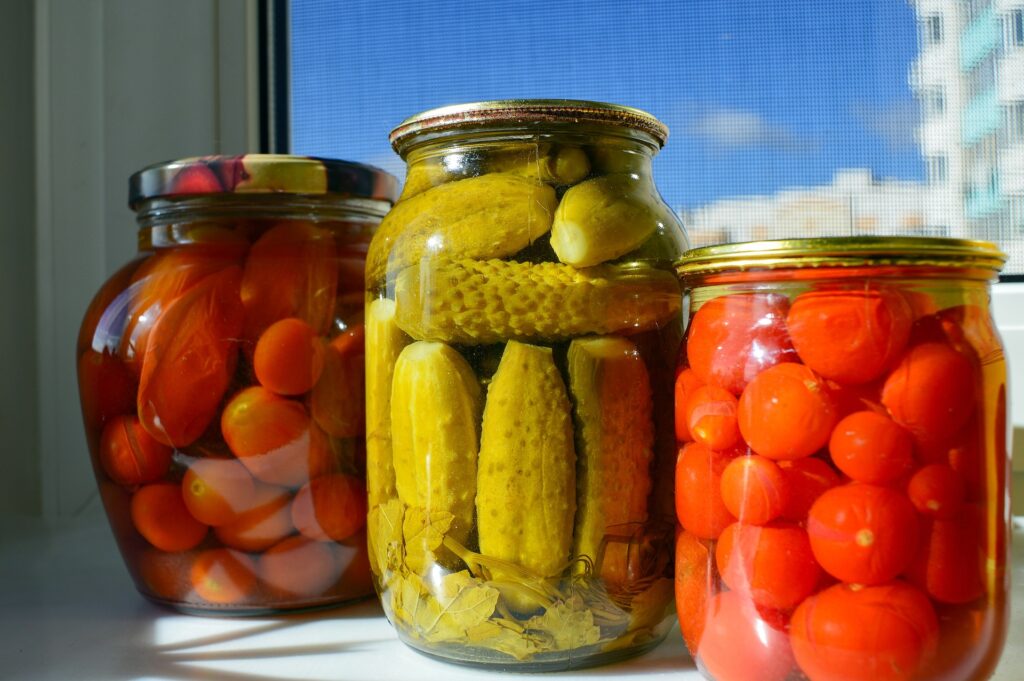
By learning how to preserve food at home, we reduce the likelihood of wastage, extend its shelf life, and ensure that we can enjoy fresh produce even when it’s out of season.
The most popular food preservation methods are:
Canning: Canning involves sealing food in airtight containers, typically jars or cans, and heating them to destroy microorganisms that can cause spoilage. This method is widely used for fruits, vegetables, jams, and sauces.
Freezing: Freezing is one of the simplest and most common ways of preserving food. It involves lowering the temperature of food to inhibit the growth of microorganisms. Vegetables, fruits, and prepared meals can be successfully preserved through freezing for months or even years.
Fermentation: Fermenting food is a traditional method of food preservation in many parts of the world. The process of fermentation involves the conversion of sugars and carbohydrates into alcohol or organic acids by bacteria, yeast, or other microorganisms. Common fermented foods include sauerkraut, kimchi, pickles, yogurt, and various types of cheeses. Fermented foods are not only tasty but also offer health benefits. The presence of probiotics, live bacteria that promote gut health aid in digestion, boost the immune system, and may contribute to overall well-being.
Pickling: Pickling is the process of preserving food in a vinegar-based acidic solution. This method is commonly used for raw mangoes, cucumbers, beets, carrots, and various other vegetables. The acidity in the solution allows the vegetables to be stored for extended periods without the risk of spoilage.
Dehydrating or Drying: Dehydrating removes the moisture from food, preventing the growth of bacteria, yeasts, and molds. Dried fruits, teas, herbs, and spices are commonly dehydrated food items. The process is usually done with an oven, in the sun, or with a dehydrator.
5. Try Composting
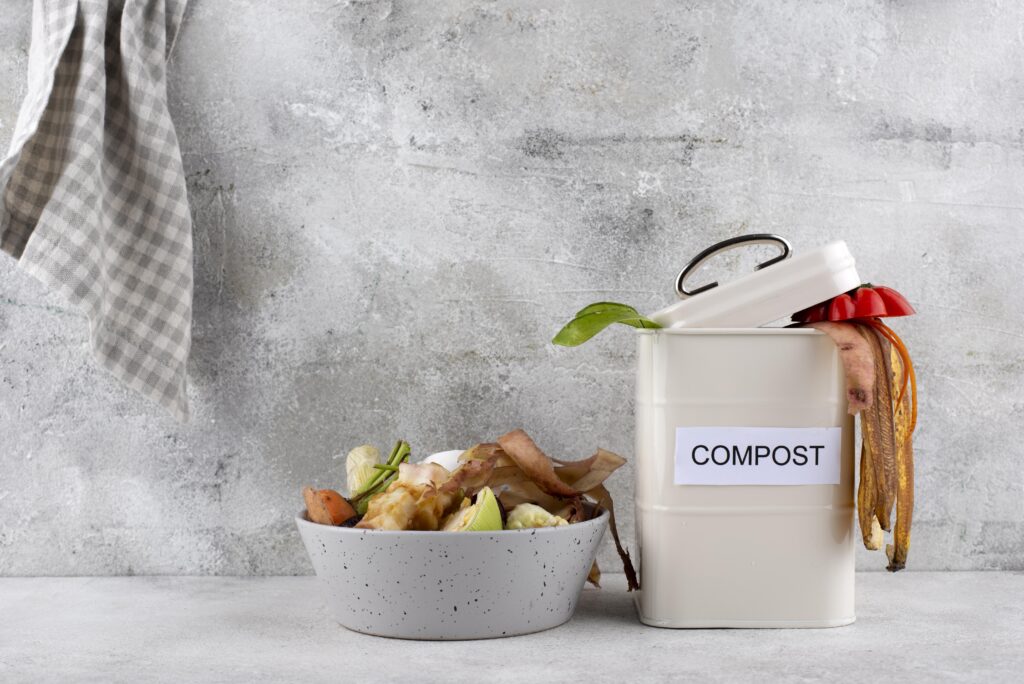
Composting is the process of turning food scraps, leftovers, and other biodegradable materials into nutrient-rich soil that can be used to grow plants. It’s an easy and sustainable way to reduce food waste and recycle organic waste into a natural fertilizer for your garden. Generally, it takes about a few weeks to several months to produce good quality and healthy compost, depending on the size and type of organic matter.
Composting not only encourages healthy plant growth in your garden but also lowers greenhouse gas emissions.
Final Thoughts On How To Minimize Food Waste at Home
The global fight against food waste has gained momentum in recent years. It requires a multifaceted and collaborative approach, with individuals, businesses, governments, and organizations playing crucial roles.
By following these easy tips, you can help reduce food waste and make a huge global impact. Remember, it’s not about implementing all these strategies in one go but making small, doable changes. Focus on the areas or types of food that you are having trouble with, and begin with minor adjustments.
Do you have any more suggestions than the ones I’ve listed here to help reduce food waste? Leave a comment down below!



